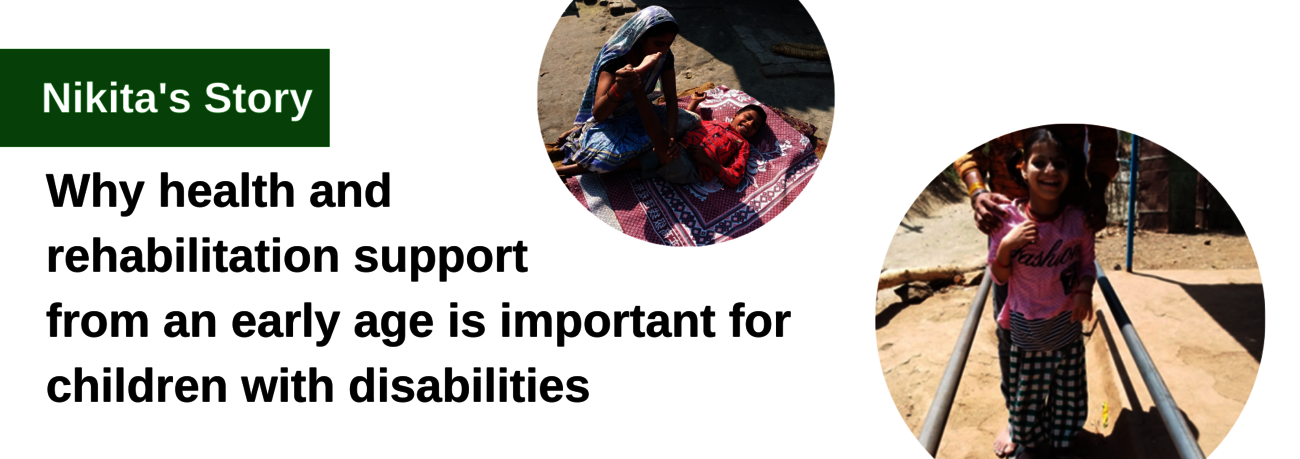Nikita was born with cerebral palsy into a poor family. Her father is a bus driver and her mother a housewife. Nikita has high support needs, but because she lives in a remote village, she was deprived of rehabilitation services.
In 2018, at the age of four, Nikita was enrolled in the tele-rehabilitation Project Sambhav through the project’s affiliated partner organization, St. Paul Service Society. Through Project Sambhav a proper assessment and an individual rehabilitation plan were prepared, and home-based therapy was initiated by the local facilitator. Nikita’s mother was coached on basic therapy, like proper positioning, stretching exercises, and functional activities.
"Since the parents are seeing these improvements, they are eager to make even greater efforts themselves."
— Buipal village, Madhya Pradesh, India
Regular monitoring and real-time parent guidance and counselling were provided by an expert from Project Sambhav. As a result, with the participation of parents and the efforts of the facilitator, Nikita’s condition started improving, particularly a reduction in excessive salivation and improvement in hand coordination while handling objects. Today she can sit without support, is able to stand with support, and can walk through the parallel bar. Nikita’s parents say they are delighted with their daughter’s progress and are eager to make even greater efforts for her further improvement.
About Project Sambhav: E-Health improving the quality of services for children with disabilities in the rural area
Jan Vikas Samiti, an NGO based in Murdaha, Varanasi, Uttar Pradesh, launched Project Sambhav in 2018, an IT tool providing community-based rehabilitation (CBR) services to rural children with developmental disabilities in low-income communities. Project Sambhav works with 19 grassroots organizations whose facilitators use a web portal and smartphone app to deliver e-health support, mainly by sharing pictures and videos. Service plans are quick and cost-efficient, and traveling is reduced dramatically. In 2021 more than 700 children used the service.
“Reaching the unreached, making rehabilitation possible through Project Sambhav.”
— Fr. Chandran Riymonds, Jan Vikas Samiti
In 2022, this initiative by the Jan Vikas Samiti received a Zero Project Award for its innovative approach, scalability, and impact to remove barriers for persons with disabilities.
A scalable model to remove barriers
Would you like to receive more information on the initiative, and contact the initiators? Find all information in the Zero Project Database along with more than 700 other innovative and scalable solutions to remove barriers for persons with disabilities.
Jan Vikas Samiti's Official Website: http://www.janvikassamiti.org/
A first version of this article was published in the Zero Project Report 2022 on Accessibility:
